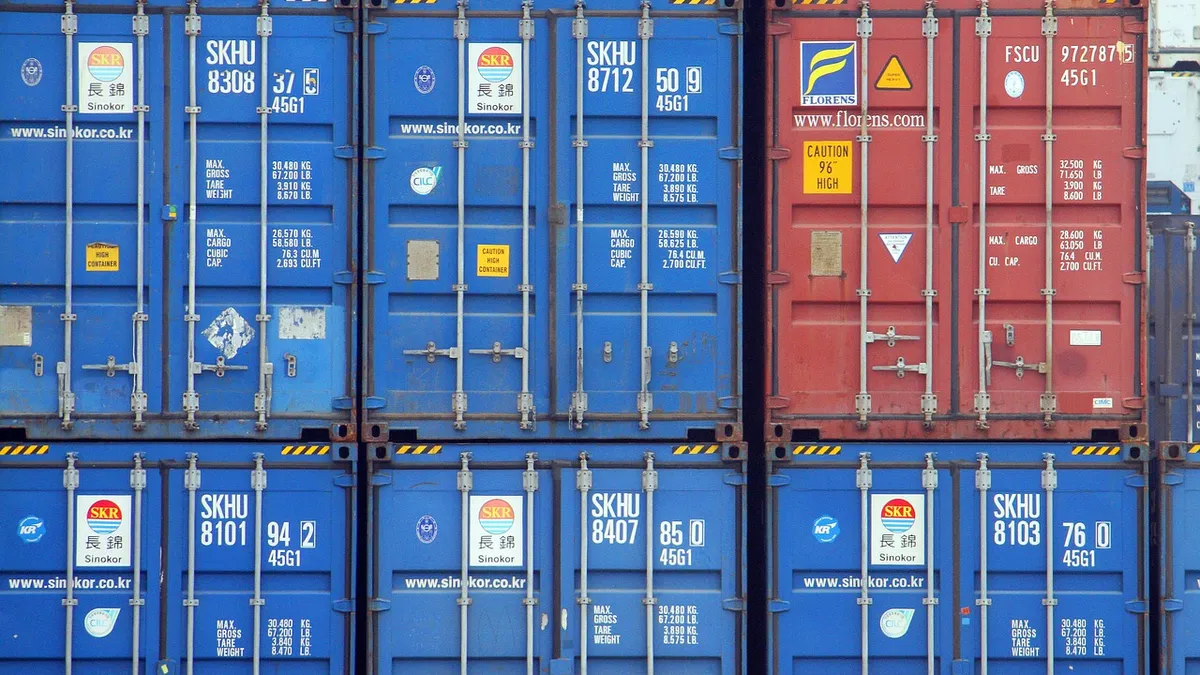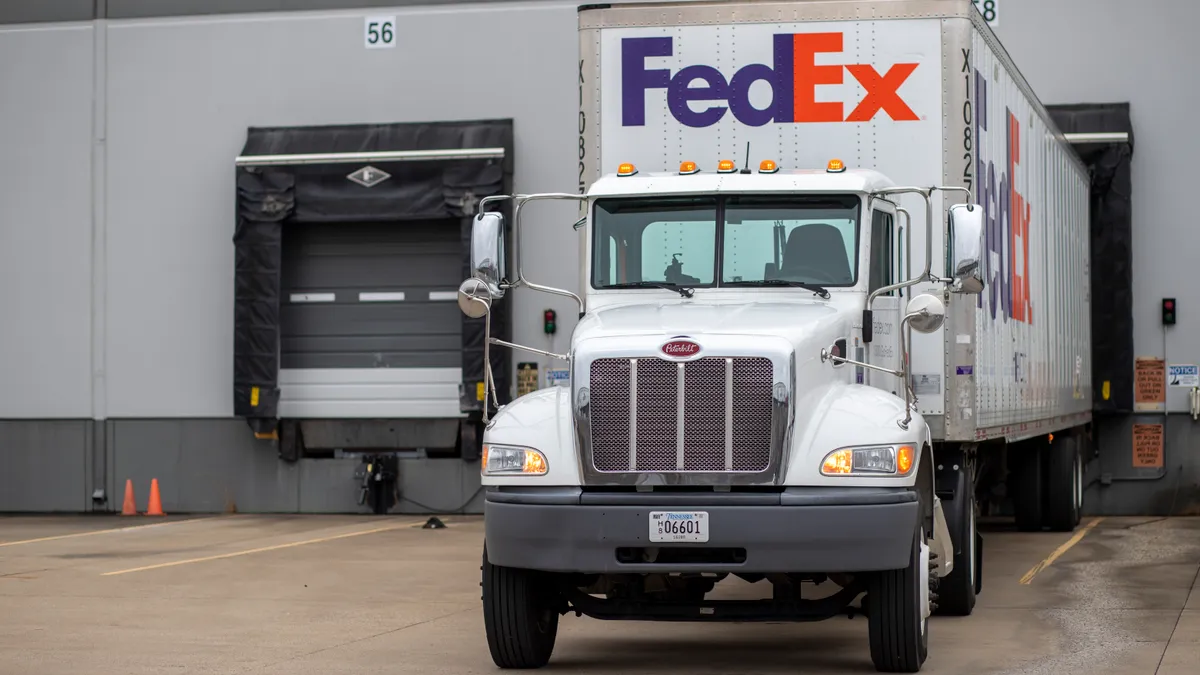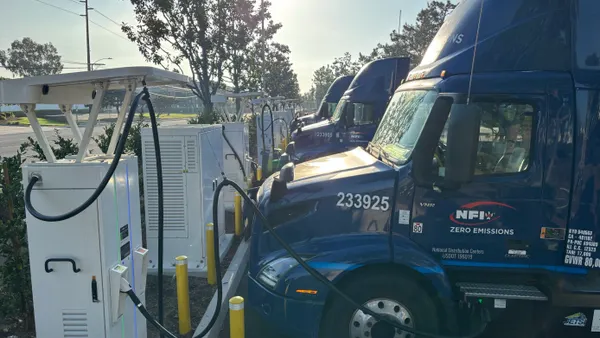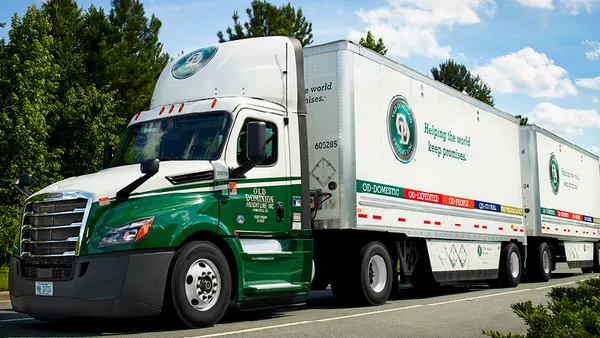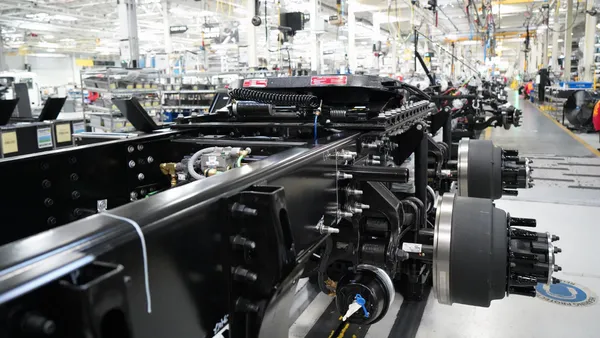Dive Brief:
- Estimates from the World Trade Organization (WTO) show global merchandise trade declining in every region of the world and across most sectors of the economy in 2020. In an optimistic scenario, global trade would decline by 13% year over year (YoY). In a pessimistic scenario, the decline drops to 32% or more YoY. The wide margin between scenarios is due to "the unprecedented nature" of the coronavirus pandemic, the WTO said. But the organization predicts trade levels will likely be worse than they were during the Great Recession.
- A drastic drop in trade will directly affect trucking companies moving intermodal freight. "It will impact us in a big way," Texas Trucking Association President and CEO John Esparza told Transport Dive in an interview Wednesday. "We're going to brace ourselves for another downturn."
- WTO said estimates for the expected recovery are also uncertain. "If the pandemic is brought under control relatively soon, and the right policies are in place, trade and output could rebound nearly to their pre-pandemic trajectory as early as 2021 — regardless of how steep the initial fall is. But there are other scenarios in which trade volumes post-recovery would remain below the pre-COVID trendline," WTO Director-General Roberto Azevêdo said in a press conference Wednesday.
Dive Insight:
In the current climate, trucks are either moving essential supplies or sidelined and looking to the federal stimulus bill to provide financial relief. For the companies experiencing the latter, low trade volumes would compound the lack of business stemming from the coronavirus pandemic.
Azevêdo noted that it was during the final quarter of 2019 that global trade merchandise fell significantly, "largely due to uncertainties that we had been seeing in the international economy, to the trade tensions that were out there," he said.
Not coincidentally, reports from DAT, Cass and the American Trucking Associations late last year showed shippers were holding off on contracts due to tumbling spot rates. Cass' report specifically called out the state of trade, reporting, "The weakness in spot market pricing for many transportation services, especially trucking ... strengthens our concerns about the economy and the risk of ongoing trade policy disputes."
Although trucking is cyclical and businesses are accustomed to varying demand, a year that turns out like either of WTO's scenarios spells trouble.
"When trade is impacted, and the ports start to slow down, you start laying people off," Esparza said. Larger companies let go of contractors during a trade sump; the industry is familiar with the "ebb and flow" nature of trade, he said. But the risk is always that, if a company needs to recontract owner-operators during a spike in trade, they may not be available.
"I think [a trade slump] is a severe impact to everyone, but the owner-operator is now more so on his own to adjust to freight," Esparza said. That means the ability to keep contracting depends on if the owner-operators can diversify. Can they hook up to a dry van? Do they have an endorsement to haul chemical? Or can are they too specialized? "It just becomes a more difficult world for everybody. But most certainly the owner-operator is going to feel it more directly and more quickly," he said.
It's still possible to ward off WTO's worst-case scenario, though. To achieve the optimistic scenario, in which trade drops by 13% YoY ("about the same order of magnitude of the 2008 crisis," according to Azevêdo), WTO Chief Economist Robert Koopman said trade "can play a very helpful role" in responding to the pandemic.
One way is to diversify supply chains, domestically and internationally. But Koopman warned during the press conference that doing it all domestically means, "you're likely to be allocating scarce resources to relatively high cost production that somebody else could do better."
Koopman also suggested planning for the next pandemic or natural disaster. "It could be a hurricane; it could be an earthquake; it could be an industrial accident that hits your domestic supply chain, not just your international supply chain," he said. "So, you need to think about, how do firms manage their inventories? Maybe they need to have a little bit more flexibility, both in terms of diverse supply sources, but perhaps they carry a bit more inventory than they've been using recently."


